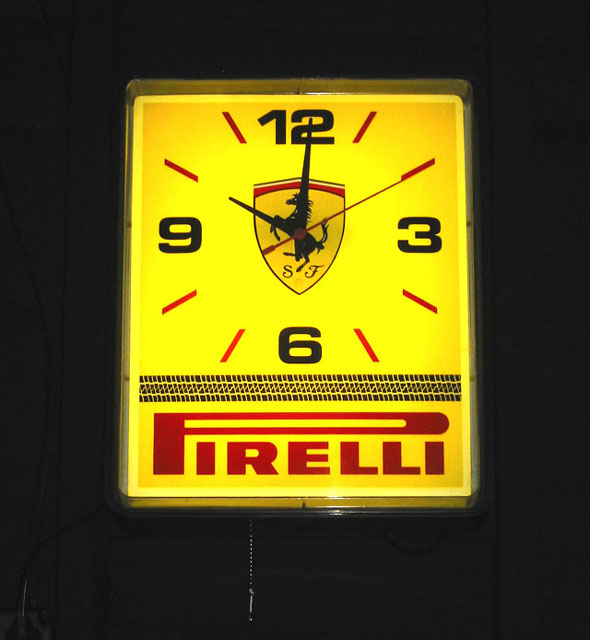| Author | Message | ||
| James Selevan (Jselevan)
Member Username: Jselevan Post Number: 612 Registered: 6-2002 |
Chris - great information. Just goes to show - 300 heads are better than one. Thank you. Jim S. | ||
| Chris F. (Chrisfromri)
New member Username: Chrisfromri Post Number: 44 Registered: 1-2003 |
I have used a product called Novus for applications like this. They make a #1 which is a low static anti-fog cleaner, a #2 which polishes fine scratches, and a #3 which polishes heavy scratches from acrylic lenses, etc. You start with the highest number you need for your item and work your way to #1 -- it's a system. Doing an acrylic/plastic record turntable dust cover that was pretty heavily scratched I first wet sanded it with #1000 wet/dry sand paper, and then used Novus 3, 2, 1. The end result looked like it was brand new. I am very satisfied with this product, and have used it on countless other projects. I purchased my set of 3 from Micro-Mark, but the package says to call 800-548-6872 for your nearest distributor. The maker is Novus Inc. in Minneapolis, MN 55438. Kind Regards, Chris | ||
| James Selevan (Jselevan)
Member Username: Jselevan Post Number: 611 Registered: 6-2002 |
Robert and Peter - thank you very much. If anyone finds a source for these plastic lenses, please let me know. For the moment, I will try to remove and follow these gentlemen's advice. Jim S. | ||
| Robert W. Garven Jr. (Robertgarven)
Junior Member Username: Robertgarven Post Number: 182 Registered: 2-2002 |
James & Peter, A couple of points. On my gt4 every once and a while when the weather gets really hot I have had moisture build up on the inside of the glass. When it dries it leaves a haze on the inside. Would like to remove them and clean them but when my clock broke and Palo Alto Speedo fixed it and replaced the lens I found out how hard they are to remove on my model!!! The instruments on the gt4, daytona & 246 with the chrome bezel has a chrome strip which is rolled around two parts which the guy at PAS said you had to have a special machine to remove/replace. That being said I have had very good luck with the meguires plastic polish, it comes in 2 bottles and recently polished a plastic lens that was so opaque you could not see through it to crystal clear(see below). If you can remove the lens I know this will work. It also will restore the wheel caps to like new.  | ||
| '75 308 GT4 (Peter)
Advanced Member Username: Peter Post Number: 2877 Registered: 12-2000 |
I forgot to add, that a long time ago, Magoo replaced the lens on a gauge himself. There may have been others too. I'm sure its somewhere deep in the archives here... | ||
| '75 308 GT4 (Peter)
Advanced Member Username: Peter Post Number: 2876 Registered: 12-2000 |
Bear with me on this one, its a long-shot... The "fuzzyness" may not be on the surface, but within the plastic. Years of heating/cooling cycles (from cold nights and turning on the lights) may have caused microscopic cracks. If its internal, I think there would be no choice but to replace. That wouldn't be difficult or costly to do. It can't hurt (but would be tedious), to first remove the lenses and shoot them with Novus multi-step plastic polishes. I know for sure the clock's lens is plastic (and it too is slightly hazy on my car), because of the hole for the hands-setting knob, but the rest of the gauges on my dash are glass and are clear. Yours are all plastic?... | ||
| James Selevan (Jselevan)
Member Username: Jselevan Post Number: 610 Registered: 6-2002 |
Has anyone experience on polishing plastic instrument lenses on older F-cars. In particular, I am interested in cleaning up the lenses on the Boxer. During the day they appear fine. In the evening, with the lights on, there is a diffusion of instrument lights through the lenses as though there are small scratches on the inner surface. This creates a "glow" where the entire lenses lights up and it is difficult to see the instrument reading. I can remove the plastic lenses, and would replace them if I could fine replacements, but thought it might be easier to polish the plastic. An old watch trick is to use toothpaste to polish the crystal (slightly abrasive). However, I am concerned that this may actually accentuate the problem. Any ideas? Jim S. |